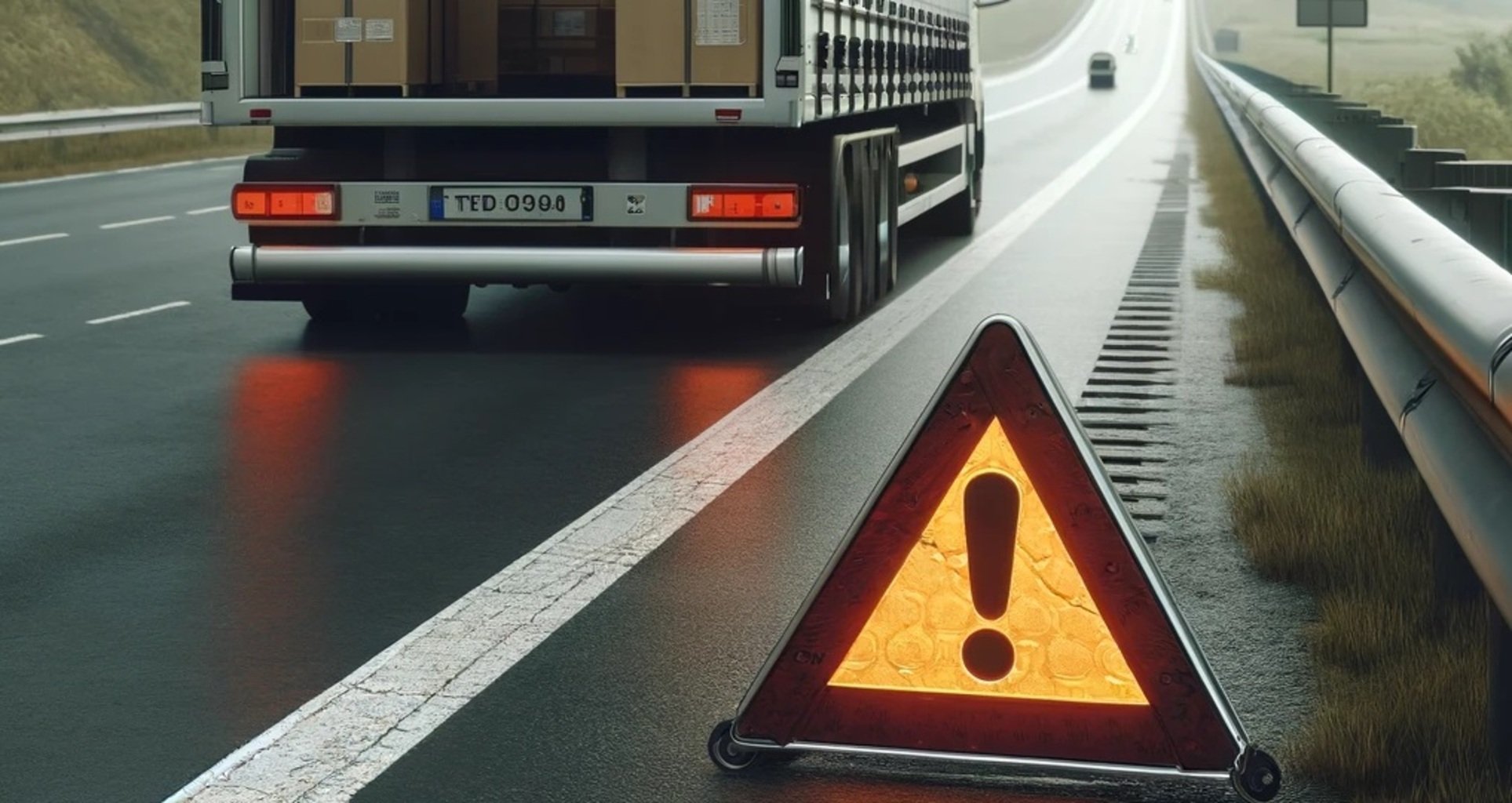
Warunki drogowe w Europie mogą być trudne nawet dla doświadczonych kierowców. Kiedy ciężarówka zatrzymuje się z powodu awarii technicznej, ważne jest, aby działać szybko i zgodnie z lokalnymi zasadami bezpieczeństwa. W tym materiale omówimy, co należy zrobić, gdy pojazd ulega awarii w Europie.
Pierwsze kroki
Przede wszystkim — włącz światła awaryjne i ustaw znak ostrzegawczy zgodnie z wymaganiami danego kraju (zwykle 50-100 m od pojazdu). Upewnij się, że masz na sobie kamizelkę odblaskową, jeśli wychodzisz na jezdnię.
Następnie oceń sytuację. Jeśli problem jest niewielki i masz odpowiednie umiejętności, możesz spróbować go naprawić samodzielnie. Jednak w większości przypadków rozsądnie jest wezwać pomoc techniczną. W wielu krajach działają służby wsparcia technicznego, które obsługują zarówno lokalnych, jak i zagranicznych przewoźników. Najpopularniejsze usługi to ADAC w Niemczech, ÖAMTC w Austrii, Touring w Belgii.
Z góry przygotuj kontakty do serwisów w krajach, przez które podróżujesz. Warto również mieć polisę ubezpieczeniową, która obejmuje holowanie pojazdu lub naprawę na miejscu. Koniecznie poinformuj swojego dyspozytora i klienta o sytuacji, szczególnie jeśli ładunek jest pilny lub wrażliwy na warunki transportu.
W przypadku poważnej awarii — zorganizuj holowanie do najbliższego warsztatu. Jeśli pojazd nie może być naprawiony na miejscu, będziesz musiał zorganizować tymczasowe przechowywanie ładunku lub przekazać go innemu pojazdowi. Nie zapomnij zachować wszystkich dokumentów, paragonów i raportów o zdarzeniu — mogą być potrzebne przy składaniu roszczenia ubezpieczeniowego lub raportu dla klienta.
Przestrzeganie przepisów prawa kraju pobytu
To kluczowy aspekt. W niektórych państwach za niewłaściwe zaparkowanie ciężarówki lub brak oznaczenia awarii przewidziane są wysokie kary. Dlatego zawsze należy mieć przy sobie odpowiedni sprzęt i dokumenty.
Profesjonalne przygotowanie, odpowiednie planowanie i podstawowa wiedza techniczna pomogą uniknąć problemów i zminimalizować straty w przypadku awarii. Zapewnij sobie listę kontaktów do pomocy technicznej, aktualizuj polisę ubezpieczeniową i miej narzędzia pod ręką.
Czytaj także: Najważniejsze punkty przy transportowaniu ładunków ADR






